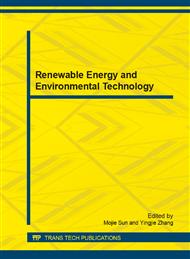p.3101
p.3109
p.3115
p.3119
p.3123
p.3129
p.3135
p.3141
p.3147
Research on the Control Strategy of Hybrid Energy Storage for Hybrid Electric Vehicles Based on Grid Partition and Adaptive Fuzzy Neural Network
Abstract:
In order to take the full advantages of battery and ultracapacitor of hybrid energy storage (HES) for hybrid electric vehicles (HEV) and solve the power allocation problems of the two energy storages when the working condition was changing, we propose a grid partition (GP) and adaptive fuzzy neural network (AFNN) control strategy. Firstly, the structure of AFNN wad determined by GP; Secondly, by adopting the back-propagation algorithm and least square method respectively, the front and back parameters of the AFNN were optimized, and the study efficiency of the parameters was raised. Finally, use the fuzzy membership functions and rules which generated automatically by AFNN in the control of HES for HEV. Under the ADVISOR 2002 simulation environment, verify the control strategy on the base of Urban Dynamometer Driving Schedule (UDDS) working condition. The results show that the battery and ultracapacitor could give full play to their respective advantages when the GP and AFNN control strategy was adopted, so the efficiency of the vehicle energy storage system could be enhanced and a higher efficiency of the braking energy recovery be obtained.
Info:
Periodical:
Pages:
3123-3128
Citation:
Online since:
October 2013
Authors:
Price:
Сopyright:
© 2014 Trans Tech Publications Ltd. All Rights Reserved
Share:
Citation:


